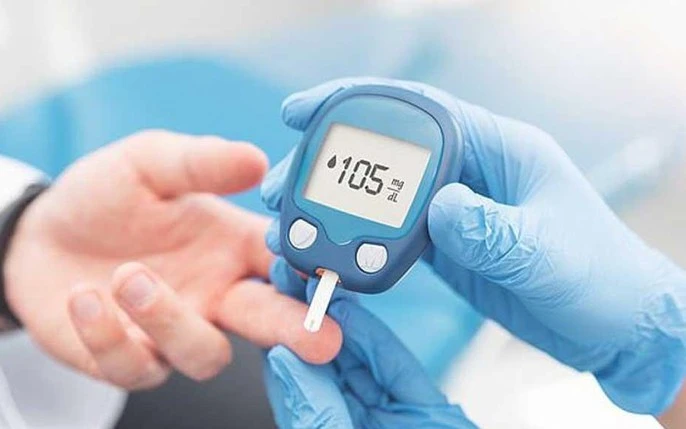Diabetes is a chronic condition that affects millions of people worldwide. Proper management of diabetes is crucial to maintaining good health and preventing complications. This article provides essential tips and information to help individuals manage their diabetes effectively and lead a healthy life.
Understanding Diabetes
Diabetes is a condition where the body either does not produce enough insulin (Type 1 diabetes) or cannot use insulin effectively (Type 2 diabetes). Insulin is a hormone that helps glucose from food enter cells to be used for energy. Without proper insulin function, glucose levels in the blood become too high, leading to various health issues.
Monitoring Blood Glucose Levels
Regular monitoring of blood glucose levels is vital for managing diabetes. It helps individuals understand how different foods, activities, and medications affect their blood sugar. A common tool for this is a blood glucose meter, which provides quick readings. Some people may use continuous glucose monitors (CGMs) for real-time tracking.
Tips for Monitoring:
Check blood glucose levels as recommended by your healthcare provider.
Keep a log of your readings to track patterns and identify any issues.
Use your data to make informed decisions about diet, exercise, and medication.
Healthy Eating
A balanced diet is crucial for diabetes management. Eating the right foods helps control blood sugar levels and maintain a healthy weight. Here are some dietary guidelines for people with diabetes:
Carbohydrate Management
Choose complex carbohydrates like whole grains, vegetables, and legumes over simple sugars.
Monitor portion sizes to avoid blood sugar spikes.
Consider carb counting to keep track of your carbohydrate intake.
Balanced Diet
Incorporate plenty of vegetables and fruits, focusing on non-starchy options.
Include lean proteins such as chicken, fish, tofu, and beans.
Opt for healthy fats from sources like avocados, nuts, and olive oil.
Meal Timing
Eat regular meals and snacks to avoid large fluctuations in blood sugar levels.
Don’t skip meals, as this can lead to low blood sugar (hypoglycemia) or overeating later.
Physical Activity
Regular physical activity helps manage diabetes by improving insulin sensitivity and lowering blood glucose levels. Exercise also benefits cardiovascular health and aids in weight management.

Exercise Recommendations
Aim for at least 150 minutes of moderate-intensity aerobic exercise per week, such as walking, cycling, or swimming.
Include strength training exercises at least two days a week.
Incorporate flexibility and balance exercises, such as yoga or tai chi, to improve overall fitness.
Medication Management
Many people with diabetes require medication to help manage their blood sugar levels. This can include insulin or oral medications. It’s essential to follow your healthcare provider’s instructions and take your medications as prescribed.
Tips for Medication Management:
Set reminders to take your medications on time.
Keep your medications organized, using a pillbox if necessary.
Regularly review your medication regimen with your healthcare provider.
Regular Health Check-ups
Regular health check-ups are crucial for monitoring and managing diabetes. These appointments allow healthcare providers to check for complications and adjust treatment plans as needed.
Key Check-ups:
A1C Test: This blood test measures average blood sugar levels over the past 2-3 months. Aim for an A1C level as recommended by your healthcare provider.
Blood Pressure and Cholesterol: Managing these is vital as diabetes increases the risk of cardiovascular disease.
Eye Exams: Regular eye exams help detect diabetic retinopathy and other eye conditions early.
Foot Exams: Diabetes can lead to poor circulation and nerve damage in the feet, so regular foot checks are essential.
Stress Management
Stress can impact blood sugar levels, making it harder to manage diabetes. Finding effective ways to manage stress is an important aspect of diabetes care.
Stress Reduction Techniques:
Practice mindfulness and meditation to help calm the mind.
Engage in regular physical activity to reduce stress hormones.
Connect with friends, family, or support groups for emotional support.
Educate Yourself
Being informed about diabetes and its management empowers individuals to take control of their health. Education can come from healthcare providers, diabetes educators, or reputable online resources.
Educational Resources:
Attend diabetes education classes.
Read books and articles on diabetes management.
Join online forums or support groups for shared experiences and advice.
Managing diabetes involves a combination of monitoring blood glucose levels, healthy eating, regular physical activity, proper medication management, and regular health check-ups. Stress management and education are also key components. By following these guidelines, individuals with diabetes can maintain good health, prevent complications, and lead fulfilling lives.
Diabetes management is an ongoing process that requires dedication and support. With the right tools and knowledge, living well with diabetes is entirely possible. Remember to work closely with your healthcare team to create a personalized management plan that suits your lifestyle and needs.


















